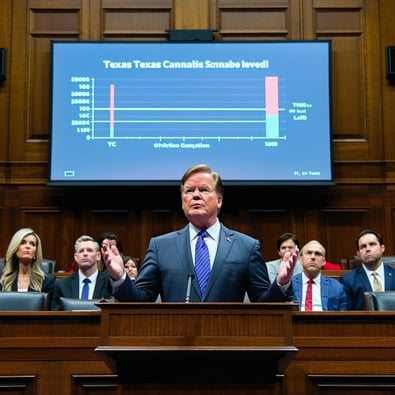Beginning February 1, CBD will be treated like a dangerous drug in Hong Kong.
In a starkly different approach from the U.S. and many other places around the world, Hong Kong moved to ban CBD and categorize it as a dangerous drug last October, and the ban begins on Wednesday.
Time reports that beginning on Wednesday, harsh penalties and huge fines—typically associated with hard narcotics—will be applied to people in Hong Kong caught in the possession, production, or smuggling of CBD.
Following in the footsteps of measures laid out in mainland China, Hong Kong’s CBD ban was announced last year, when government officials cited the difficulty of distinguishing pure CBD from THC, and the possibility of contamination during the production process. They also cited the way CBD can be converted to THC—typically in the production of delta-8 THC and other cannabinoids.
According to the Hong Kong Free Press, a Hong Kong Legislative Council Panel on Security announced in June that it would pursue a ban on CBD. Then in August, Hong Kong officials began cracking down on CBD businesses. Residents were given three months from Oct. 27 to dispose of their CBD products in special boxes set up around the city.
The full ban on CBD in the semi-autonomous administrative region begins within days.
“Starting from February 1, cannabidiol, aka CBD, will be regarded as a dangerous drug and will be supervised and managed by the Dangerous Drugs Ordinance,” customs intelligence officer Au-Yeung Ka-lun said at a press briefing.
“As of then, transporting CBD for sale, including import and export, as well as producing, possessing and consuming CBD, will be illegal,” Au-Yeung said.
People caught importing, exporting, or producing CBD can face up to life in prison and Hong Kong $5 million ($638,000) in fines. People caught in possession of CBD can face a sentence of up to seven years imprisonment and Hong Kong $1 million ($128,000) in fines.
“We will tackle all kinds of dangerous drugs from all angles and all ends, and the intelligence-led enforcement action is our major goal,” Chan Kai-ho, a divisional commander with the department’s Airport Command, told reporters Friday.
Chan said authorities would enforce the law on a case-by-case basis and “seek legal advice from our Department of Justice to determine what the further actions will be.”
South China Morning Post reports that since 2019, the department said it has seized over 4,100 CBD items that were found to contain traces of THC. Between January 2018 and December 2022, authorities arrested 38 people for their suspected connections to 68 cases where CBD products were believed to contain THC.
Hong Kong customs officials arrested nine people, seizing 25,000 CBD items worth $14.6 million Hong Kong dollars after the products were found to contain traces of an illegal cannabinoid in January 2022.
It’s quite a change from 2020, when Hong Kong’s first CBD cafe opened, selling a full range of CBD-based cannabis products including vials of CBD oil for personal use, powders to be added to foods such as oil and butters, and other products, including products for pets who need pain relief. They also sold CBD-infused beer and coffee for those who wanted to stay awhile in the cafe.
Nearby in Mainland China, CBD is banned in cosmetics, as well as all synthetic cannabinoids, which are typically made from CBD. But keep in mind that China is blamed as one of the world’s major sources of fentanyl precursors. Moreso in China than in other parts of the world, synthetic cannabinoids are mixed with other drugs more frequently.
Jaycee Chan, son of Hong Kong native Jackie Chan, served a six month sentence in 2014-2015 for hosting a get-together with weed in his Beijing apartment. That was during a crackdown on illegal drugs in the city.




